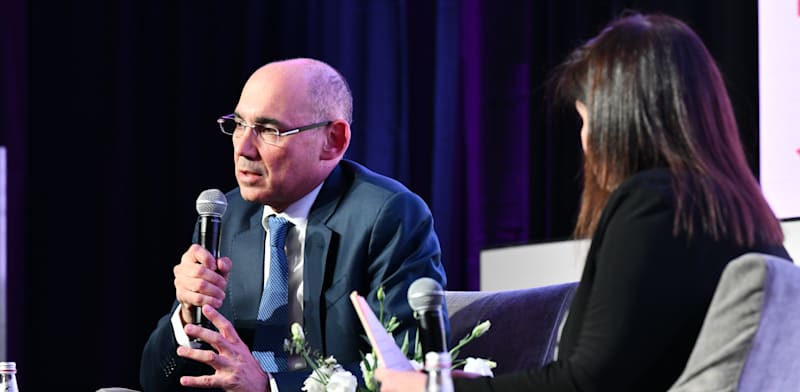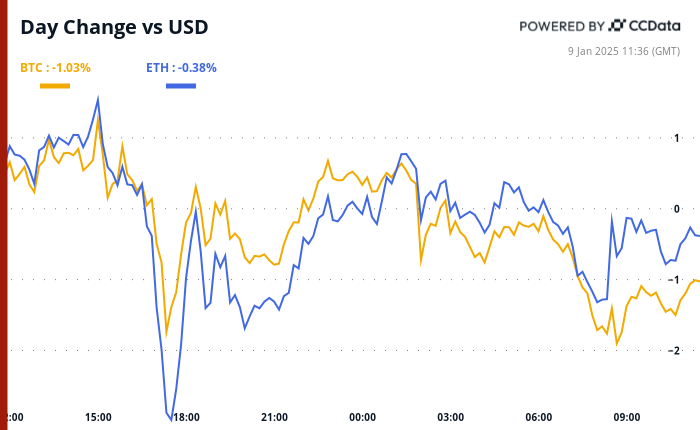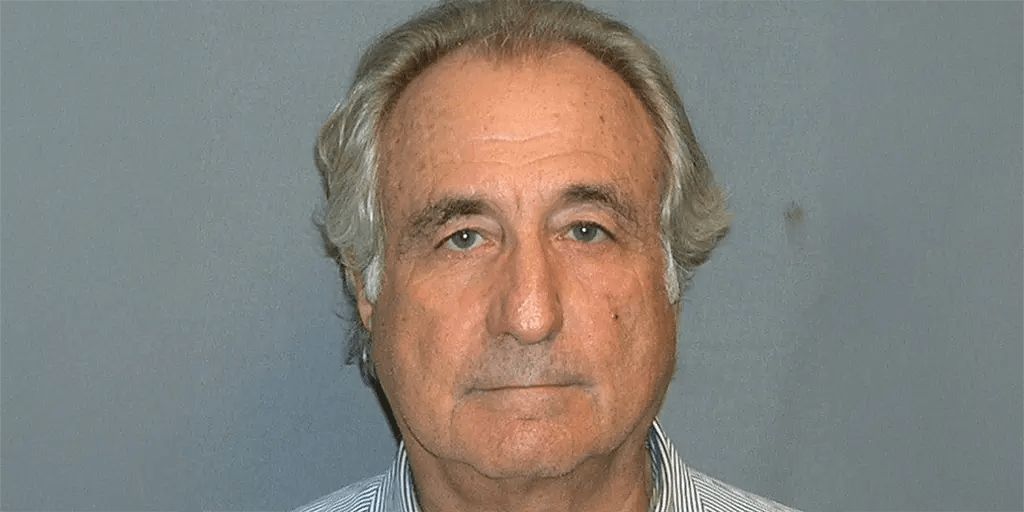
Governor of the Bank of Israel Amir Yaron indicated last night that it is still too early to talk about cutting interest rates in Israel. Talking to “Globes” editor-in-chief Naama Sikuler on the opening evening of the Globes Israel Business Conference, Yaron estimated that the rate of inflation would rise in the near term to 4%, because of the hike in the rate of VAT, but that it should decline afterwards. At the present time, Yaron said, “To cut the interest rate is to put out a fire with gasoline.”
Yaron was asked about the rate of growth of the economy, with the estimates for next year by the Bank of Israel, the Ministry of Finance, the International Monetary Fund, and the rating agencies differing widely. “It’s good that there certain differences in the growth forecasts for the economy,” Yaron replied. “The forecasts were given at different times. We are in a set of events with very high uncertainty, and I would say that in general we saw an economy that sustained a very great blow in the final quarter of 2023. We forecast that the year would end with 2% growth, and were exactly right.
“After that there was a very substantial recovery of the economy in the first quarter of 2024, but in the second quarter we came to a halt, and in the third quarter we grew at around our potential. The northern front mostly happened in the fourth quarter, and so we have yet to see what is happening in the north at the moment. But we are now seeing a reduction in the drafting of reservists, and a return to activity in the north.
“Israel’s annual growth potential before the terrible event that befell us was 4%. So the growth rate in the third quarter this year is at about our potential. The event in the north is a powerful event. Our forecast is of an end to the war in the first quarter of 2025, and after that heightened routine security. We are still at around this forecast.
“Although I said that we would grow by 0.5% this year, that still leaves us with a very large gap in comparison where we would have been were it not for the war. There has been a recovery, and we think that it will continue, as long as we make progress in scaling down the war. We have a gap of 3.6% in relation to where we would have been. We have to make up this gap in the future,” Yaron added.
The rate of inflation in Israel is perhaps more important than the growth forecasts, since interest rate decisions derive from inflation. The interest rate gap between us and the world is widening. When will it narrow?
“At the moment, inflation is running at an annual rate of 3.5%. It is still due to rise, probably to over 4%, in the first quarter of 2025, because of the rise in VAT, and also because there are still many supply constraints. Everyone sees this in construction, but it’s in many other areas. Suppose there’s one orange in the entire economy. If you cut the interest rate, what will happen is that the price of the orange will rise, but there won’t be another orange. That’s what we mean by supply constraints. To cut the interest rate at this point is to put out a fire with gasoline.”
On the interest gaps between Israel and the US and other markets where interest rates are moderating, Yaron explained that interest rate considerations in Israel are slightly different from those of the chairman of the US Federal Reserve. “The interest rate gaps of the past two years, whether from the constitutional changes or from the war period, haven’t affected our exchange rates very much. Those are much more connected to geopolitical events. We are not obliged to be completely synchronized. It’s true that the latest economic cycle has been similar in the two economies, but in the US mortgages are given at fixed interest rates. When interest rates are raised, that affects someone buying a home. In our case, when interest rates rise, it also affects those who already have a mortgage that is partly at a variable interest rate, so our policy doesn’t have to be synchronized one on one with that of the US.”
How do you see the 2025 budget?
“I want to distinguish between the framework of the budget and its composition. All along, we have spoken of the need to broadcast credibility to the markets and fiscal responsibility. An important and significant step was taken when the government decided on a budget with fiscal adjustments of about NIS 35 billion. That is inherently a significant and important step in relation to the markets. All year I have spoken to investors, including at the International Monetary Fund, which I visited two weeks before the government passed the budget. I told them: Wait until the night the budget is approved, because there was great uncertainty, but in the end a very significant step was taken in this area.”
Nevertheless, Yaron criticized the make-up of the budget. “Many more steps in the direction of supporting growth could have been begun. Certainly steps to reduce negative incentives, meaning encouraging haredim to go out to work, over the issue of daycare, welfare payments, and so on. I would have given greater support to infrastructure, and to special programs for five-point mathematics studies. There’s a great deal of coalition money that an effort could have been made to squeeze much more.”
How much should we be concerned about the defense budget, which looks as though it will grow for many years ahead?
“An economy needs security. It’s inseparable from Israel’s risk premium. But security also requires an economy. It’s a very fine balance, and the two things feed each other. There’s the Nagel committee on evaluating the security budget. As far as the defense budget framework is concerned, assuming that we grow in line with our expectations here, we can still broadcast to the markets that the debt to GDP ratio will rise to 69% in 2025 and then start to fall. If the committee comes along with greater budgetary demands, we should signal to the markets that we shall have to make further adjustments (spending cuts and higher taxes). This balance is important, and an effort must be made to find the really vital things, and also the places where the defense establishment can become more efficient.”
Will President Trump be good for the global or the Israeli economy?
“Since the Covid pandemic, we have seen an economic process of de-globalization. It started with the supply chain and the issue of surpluses. It was accompanied by geopolitical battles. It could be that it will become even sharper in response to the measures introduced. We don’t know what measures will be carried out. We also don’t know whether or not there will be reciprocity. The globalization process brought wealth, welfare, and declining prices.
“Raising tariffs will be liable to harm trade at a global level, exports, and probably global welfare. There may be specific winners here and there, but it will raise prices. The ten-year US Treasury bond had fallen to 3.8%, and now it has climbed to the region of 4.2-4.3%. Part of that is expectations of higher inflation.”
You have recently raised your tone against the banks and spoken of surplus profits. What’s your stance on this and on taxation of the banks’ extra profits?
“It’s not a matter of for or against. It’s something to be studied dispassionately. I want to take a step back and remind us that our banking system is very stable and robust. That’s super important, not to get into the maelstrom of a financial and economic crisis. The fact that there is confidence in this system is something very important. It allows us, and the system itself, as in the pandemic period, to help. In the war, the banks gave assistance to people from the Gaza border area, to reserve soldiers, and they are still giving aid to the north. It’s not something to be taken for granted that the banking system has such capital cushions.
“We have taken very many steps to improve competition in many areas. In mortgages, the spreads are very small. The shortcoming is in credit to small and very small businesses. We don’t want to intervene here, but we’re trying to improve the situation. We have introduced two new banks (One Zero and Esh Israel). We have connected fintech companies directly to our system. But it’s not enough, we’re working on it more. We don’t want to get into short-term populistic measures. We do want to maintain the stability, but on the other hand to build further competitive entities.
“We have come out with a plan for differential regulation for the banks. A small bank will be able to specialize in one segment and will not have to bear all the costs. At the same time, financial awareness is very important. The public has many possibilities today. For example, on a money market fund you can obtain returns similar to the interest rates of the Bank of Israel. It’s very easy for a consumer without financial knowledge to invest in a money market fund instead of leaving their money in a current account.”
You travel the world a great deal. Have you encountered antisemitism?
“People are very interested in Israel. We have a presence disproportionate to our size. That was true during the pandemic, and it’s certainly true now. At one of the recent International Monetary Fund events, someone very senior there said to me ‘I’m so glad that you came, that you expressed your view, and didn’t hide.’ That gives some indication of the complexity of the situation we’re in. We must invest in growth engines. The war is a weight on the economy and of course on sentiment that is very hard to measure. As far as possible we have to restore positive sentiment.” <pThe Globes Israel Business Conference is held in collaboration with Bank Hapoalim and The Phoenix Holdings and is sponsored by El Al, Bezeq, Nespresso, Wolt, Dell, the Israel Medical Association, Energean, the Jewish National Fund, BlackRock, Playtika, Meta, Strauss Group, BAZAN Group, and MSCI, with the participation of Mekorot, The Port of Ashdod, and the Israel Innovation Authority.
Published by Globes, Israel business news – en.globes.co.il – on December 3, 2024.
© Copyright of Globes Publisher Itonut (1983) Ltd., 2024.









Leave a Comment